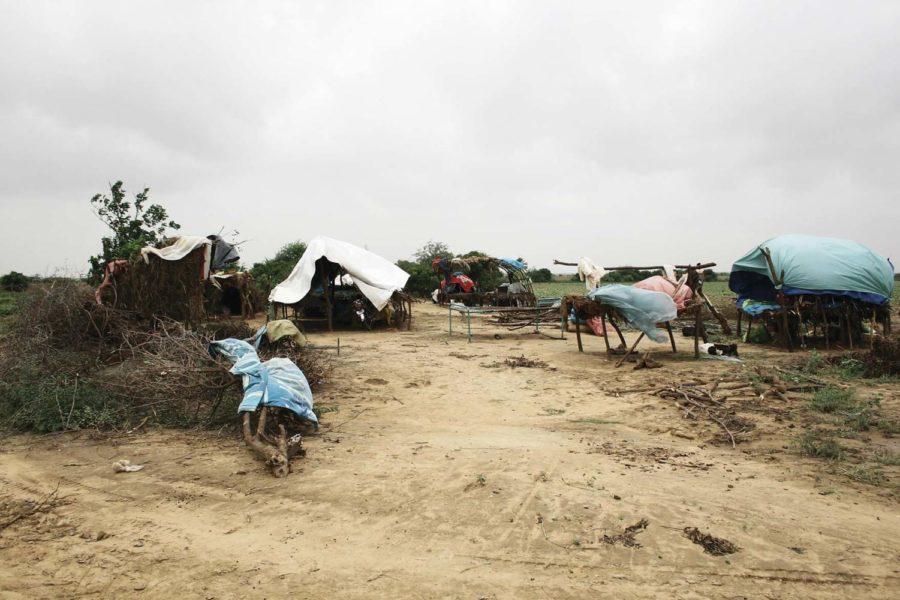Bruning: Land grab or humanitarian development?
Village
December 13, 2011
In the last six months, talk of local involvement in what has been called a “land grab” has come to some people’s attention. Agrisol Energy and Iowa State University began work on a sustainable farm development project in Tanzania in February 2010. The Tanzanian government called for proposals to develop land in the country for agricultural purposes.
In June, the Oakland Institute released information concerning land grabs in Africa. Land grabs are when people, countries or companies purchase large amounts of land from developing countries for a cheap price. This has been something that countries such as Japan and China have done in order to grow food to support their population and something that happened in the United States with settlers sometimes trading a bottle of alcohol to a tribe chief for huge amounts of land. It’s a common occurrence throughout history and it is reasonable to question if Agrisol’s project is similar.
I had the opportunity to sit down with David Acker, associate dean in the College of Agriculture and Life Science and the project lead for the university. He began by informing me that because of the conflict of interest between Board of Regents President Pro Tem Bruce Rastetter, a co-founder and team member for Agrisol, and the university being involved in his personal business endeavor, that the role of consulting had been passed along to Ohio State.
I attempted to contact the head of the Ohio State project and received a somewhat rude reply saying he was leaving the country for the month and demanding that I provide him with a note from Acker before he would tell me anything.
Original data projected by the Oakland Institute was that the project would displace 125,000 refugees from 800,000 acres. Acker shared that the Tanzanian government had allowed them to choose from various plots of land. Some of the options did include refugee camps. However, the 250,000-acre plot they decided on in the area of Lugufu is a refugee camp that has been closed down for the past three years and the associate dean insists that no refugees will be displaced.
Of this 250,000-acre plot, about half will be under the leased by Agrisol and half will be used by local farmers. Acker claims that because of Agrisol’s presence, local farmers will have access to processing facilities and a more proximate market so that they would be able to sell their excess.
To top it all off, Agrisol has agreed to set aside a portion of the profits to a community trust fund.
It seems relatively harmless. Agrisol was commissioned by the Tanzanian government to start the project, they have agreed to provide local farmers with access to equipment and education, no one will be displaced and the local communities also will receive part of the profits.
I still had some questions though. Will this project be something the country can sustain itself or will it become dependent on a U.S. company for food? I can foresee a scenario where Agrisol decides that the endeavor isn’t profitable and pulls out. In a past newspaper article, Agrisol claimed that the soil there is capable of producing 20 times its current amount. Is the soil actually capable of that or will it have to be pumped full of nitrogen? What sort of sustainable farming techniques will even be utilized? And finally, Agrisol has said it won’t negatively influence the Tanzanian market by, for example, flooding the market and driving prices down or withholding supplies and driving the prices up. However, since it is a private company, what sort of safeguards are there to ensure that won’t happen? It would be nice to take everyone for their word. However, history in this situation does not flatter the group buying the land.
I had hoped to ask Agrisol these questions. However, after an email and a phone call with an Agrisol team member who said he would get back to me and never did, I was left with even more questions when, after trying the number for the Agrisol team member I had spoken to earlier in the week, I was connected with a tired sounding man unaware of what Agrisol Energy was.
It is all a nice idea. Introducing stability into aiding developing countries through the private sector. However, in today’s world sometimes I question the intentions of the private sector. When an attempt to answer these questions is met with shady phone numbers and dead ends, it continues the endless circle of questions.
In this instance of unanswered questions, I encourage you to ask more. It is entirely possible that there are nothing but good intentions with this project, but I have not been shown that by anyone apart from associate Dean Acker, whom I thank very much for his help.
Our world is kept in place by checks and balances. We must take action and inquire into things we see as potentially harmful, and I encourage you to ask the questions necessary to bring things into public view. As for whether those questions will shed light on underhanded profiteering or on an exceptional blend of business and humanitarianism, we have yet to find out.







